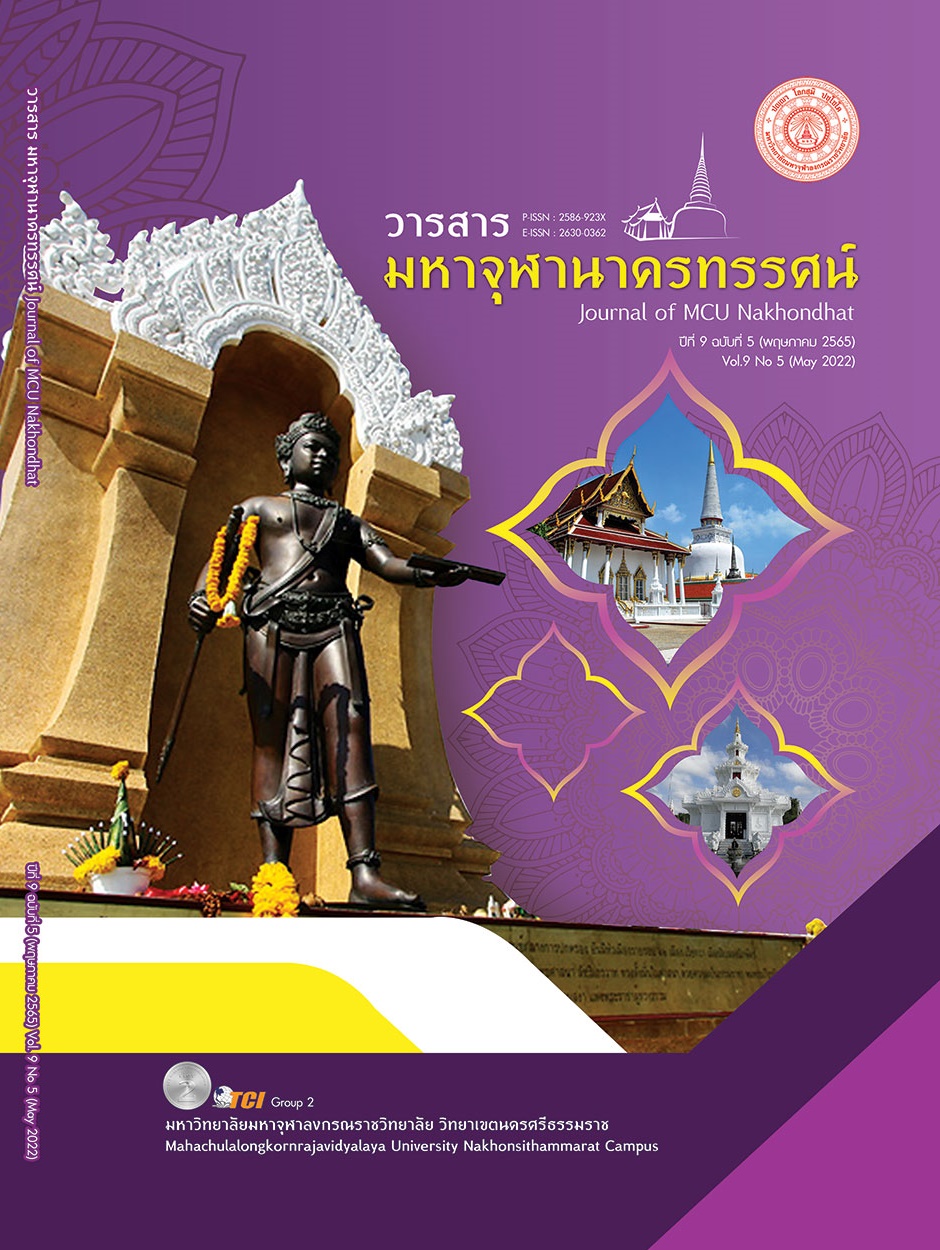THE EFFECTS OF EMPOWERMENT ENHANCEMENT PROGRAM IN UNCONTROLLED TYPE 2 DIABETES MELLITUS PATIENTS
Main Article Content
Abstract
The purposes of this research were to study the effects of empowerment enhancement program on self-care behaviors and hemoglobin A1C in uncontrolled type 2 Diabetes Mellitus patients. The uncontrolled type 2 Diabetes Mellitus patients who received care at the diabetic clinic at Jainad Narendra hospital were randomly assigned in experimental and control group. Each group consisted of 21 patients. The intervention instruments was the empowerment enhancement program. It consists of 4 steps: 1) Discovering reality, 2) Critical reflection, 3) Taking charge and 4) Holding on. In which each step lasted about 60 minutes within 12 weeks period: Week 1, Week 2, Week 8, and Week 12. Data were collected using the questionnaires of self-care behaviors with the reliability at .87. Data were analyzed by frequency, percentage, Chi-Square test, mean, standard deviation and t-test. The results of this study showed that: 1) The experimental group’s mean score of the self-care behaviors were significantly higher than before involving the empowerment enhancement program; and significantly higher than control group at the level .01. 2) The experimental group’s mean score of the hemoglobin A1C were significantly lower than before involving the empowerment enhancement program; and significantly lower than control group at the level .01. In conclusion, the result of this study suggests that empowerment intervention is helpful in promoting type 2 Diabetic Mellitus patients to perform self-care behaviors and control hemoglobin A1C.
Article Details

This work is licensed under a Creative Commons Attribution-NonCommercial-NoDerivatives 4.0 International License.
References
แก้วรี กฤตสัมพันธ์. (2562). ผลการเสริมสร้างพลังอำนาจต่อพฤติกรรมการดูแลตนเองและการควบคุมระดับน้ำตาลในเลือดของผู้ป่วยเบาหวานชนิดที่ 2 โรงพยาบาลสามเงา จังหวัดตาก. วารสารวิชาการสุขภาพภาคเหนือ, 6(2), 78-93.
โชติกา พลายหนู และคณะ. (2561). การเสริมพลังอำนาจแบบมีส่วนร่วมเพื่อส่งเสริมพฤติกรรมการปรับตัว และลดระดับน้ำตาลในเลือดผู้เป็นเบาหวานที่ควบคุมระดับน้ำตาลไม่ได้. วารสารพยาบาลสาธารณสุข, 32(1), 137-155.
โรงพยาบาลชัยนาทนเรนทร. (2564). สถิติผู้ป่วยโรคเบาหวาน. ชัยนาท: โรงพยาบาลชัยนาทนเรนทร.
กรมควบคุมโรค. (2564). สถานการณ์โรคเบาหวาน. เรียกใช้เมื่อ 20 ธันวาคม 2564 จาก https://ddc. moph.go.th/brc/news.php?news=21692&deptcode=brc
จุฑามาศ ใบพิมาย และคณะ. (2560). ผลของการกำกับตนเองด้วยข้อมูลทางคลินิกต่อพฤติกรรมการควบคุมโรคเบาหวานและระดับน้ำตาลสะสมในเลือดของผู้ป่วยโรคเบาหวานชนิดที่ 2 ที่ควบคุมระดับน้ำตาลในเลือดไม่ได้. วารสารพยาบาลสาธารณสุข, 31(3), 131-151.
ชัยณรงค์ ทรงทอง. (2560). การเสริมพลังอำนาจในการป้องกันโรคเบาหวานของผู้สูงอายุกลุ่มเสี่ยงโรคเบาหวานตำบลนาโพธิ์ อำเภอทุ่งสง จังหวัดนครศรีธรรมราช. วารสารบัณฑิตวิทยาลัย มหาวิทยาลัยราชภัฏราชนครินทร์, 1(1), 61-67.
ณาเดีย หะยีปะจิ และพิสิษฐ์ พวยฟุ้ง. (2562). ปัจจัยที่มีความสัมพันธ์ต่อการควบคุมระดับน้ำตาลในเลือดของผู้ป่วยเบาหวานชนิดที่ 2 ที่มารับการตรวจติดตามระดับน้ำตาลที่กองการแพทย์ เทศบาลนครเชียงราย. วารสารการพยาบาล การสาธารณสุขและการศึกษา, 20(3), 83-94.
รักษิตา ภานุพันธ์ และคณะ. (2564). ความรอบรู้ด้านสุขภาพและพฤติกรรมการดูแลตนเองของผู้ป่วยโรคเบาหวานที่ควบคุมระดับน้ำตาลได้และผู้ป่วยโรคเบาหวานที่ควบคุมระดับน้ำตาลไม่ได้ ตำบลนาจิก อำเภอเมือง จังหวัดอำนาจเจริญ. วารสารวิทยาศาสตร์สุขภาพและสาธารณสุขชุมชน, 4(1), 35-47.
Cronbach, L. J. (1990). Essentials of Psychology Testing. (5th ed.). New York: Harper Collins Publishers Inc.
Gibson, C. H. (1995). The process of empowerment in Mothers of chronically ill Children. Journal of Advanced Nursing, 21(6), 1201-1210.
Miller, J. F. (1992). Coping with chronic illness overcoming powerlessness (2nd ed.). Philadelphia: F.A. Davis Company.
Orem, D. E., et. al. (2001). Nursing: Concepts of practice (6th ed.). St.Louis: Mosby.


